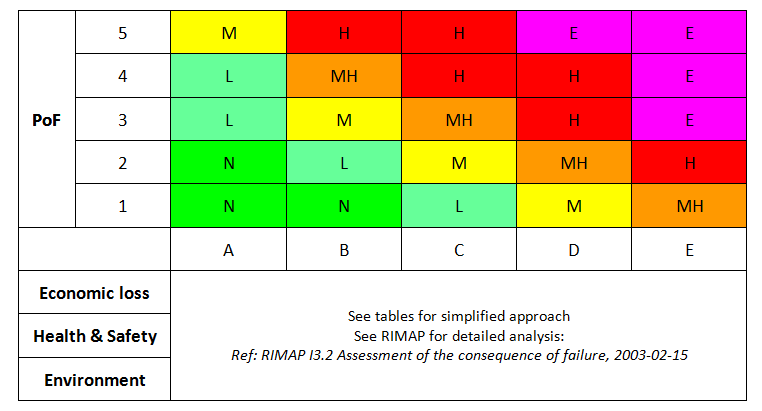RBI en CorLifeTM for the chemical and petrochemical industry
Every year a large budget goes to plant maintenance and inspections. The aim is to keep the installation operating safely for as long as possible.
Knowledge about possible degradation mechanisms is indispensable and is the outcome of a thorough corrosion study or failure mechanism study. A risk based inspection (RBI) methodology ensures that inspections are carried out where they are most needed. This thanks to the most effective techniques for detecting degradation mechanisms.
We are happy to guide you from start to finish.
RBI FOR THE (PETRO)CHEMICAL INDUSTRY
At the foundation of an RBI process is a corrosion study or failure mechanism study.
This study determines potential degradation mechanisms per ‘corrosion loop‘. Often API 571 is applied for this purpose. However, specifically for the process industry other mechanisms are sometimes applicable. METALogic has extensive experience in this field.
We review the inspection history of a facility and we compile a list of realistic expected failure mechanisms. Critical inspection locations such as dead ends and injection points are identified. A team of knowledgeable experts thoroughly evaluates the expected failure mechanisms. In doing so, they take into account the API 581 methodology for determining corrosion rates or sensitivities.
We also advise on inspection techniques and condition monitoring in relation to the identified degradation mechanisms.
The goal of an RBI process is to minimize the risk (risk = probability x consequence) of failure by effectively applying the right inspection techniques where and when they are most needed.
METALogic is happy to guide you through this whole process. Starting from the failure mechanism study over the risk calculations and -analysis to ending with an inspection planning and evergreening. Clients who prefer to keep full control themselves can also call upon our experts.
The benefits of RBI
- METALogic guides you through the entire RBI process and also does the project management.
- Optimized inspection efforts in function of the risk.
- Possible use of in-house developed software CorLife™.
- Risks are identified and kept under control.

CORLIFE™
METALogic has developed its own cloud-based software that is lean and mean, flexible and adaptable to the customer’s needs. Specifically, the software offers these features:
- Failure mechanism study
- Risk, POF (probability of failure), COF (consequence of failure) can be calculated quantitatively or qualitatively according to your requirements.
- Inspection management, including inspection planning based on customer-specific strategies.
- Simple retrieval of an overview of historical inspection results and inspection reports
- All statutory inspections, repairs, controls and customer-specific tasks are included and easily followed up.
- Fully customized inspection sheets
Benefits of CorLife™:
- Lean & mean software
- Internal and external degradation mechanisms (atmospheric corrosion, CUI, …) are considered.
- Flexibility in choice of COF model.
- Risk matrix can be adapted to customer needs.
- Calculation of minimum allowable wall thickness (MAWT) according to API 579 or customer specific code.






